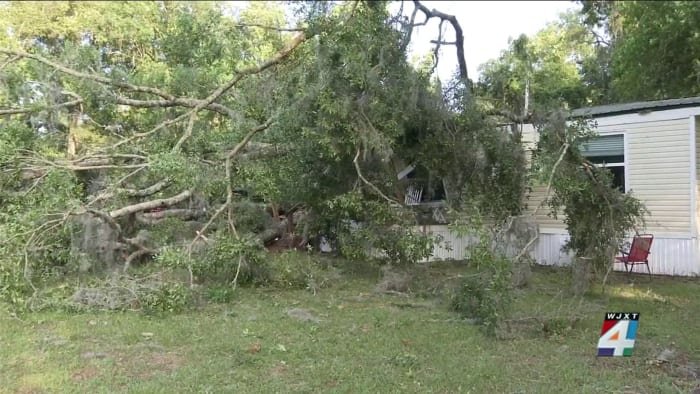
JACKSONVILLE, Fla. – It was late December when GOP candidate Nikki Haley was asked a question about the Civil War.
“I think the cause of the civil was basically how the government was gonna’ run. The freedoms and what people could and couldn’t do,” Haley responded.
“White supremacy. It’s a poison. Throughout our history, it’s ripped this nation apart. It has no place in America,” Biden said.
“It was a massive word salad,” Florida Gov. Ron DeSantis said before he withdrew from the race. “I still don’t know what she was trying to say, why she would have gone down that road. Look we’re Republicans, the Republican party was founded to oppose slavery.”
Haley was quick to amend her prior statement.
“Of course, the Civil War was about slavery. We all know that,” Haley said. “That’s the easy part of it. What I was saying, what does it mean to us today.”
But this issue of the Civil War, which ended more than 150 years ago, has permeated politics, particularly in recent years.
Let’s first start at the local level in Jacksonville with the debate over Confederate monuments.
It has also been a flashpoint at the state level since the Republican-led legislature and Governor DeSantis pushed to eliminate portions of African-American studies.
“This course on Black history. What’s one of the lessons about? Queer theory. Well, who would say that an important part of Black history is queer theory? That is someone pushing an agenda on our kids.”
News4JAX asked notable DeSantis critic Bishop Rudolph McKissick at Jacksonville’s Bethel Church about this.
“Because there are so many policies that have been put in place to fight a culture war or as he would call it ‘woke ideology.’ That is demeaning, disenfranchising, whitewashing history to the extent of saying slavery was beneficial,” McKissick said.
News4JAX Political Analyst Rick Mullaney said mentions of America’s Civil War will not end.
“Race is still an enormously important issue in this country,” he said. “So whether it’s affirmative actions, DEI, monuments, you can expect in the future we’re going to have these challenging discussions.”
One dynamic that’s happening in America today is if you disagree with someone and talk to them in person things can often be civil or you can agree to disagree however on social media platforms like X or Facebook or TikTok it’s a very different story.
“I think first and foremost, because of everything that happened January 6th… I think it gave us a real wake-up call of the reality of what could happen when we have such diabolical disagreements in political areas,” said digital media executive Dwann Holmes.
She said rhetoric online fosters events like that and it hasn’t slowed down.
“When you have people online spouting and disagreeing and promoting their truth as the truth it’s hard to get that to calm down,” Holmes said. “Social media is divided in mom groups, in school groups but it’s also divided in religious arenas and definitely in the political arena.”
She said the older population is more susceptible to information that isn’t true.
Someone who’s done a tremendous amount of research on this subject is Charles Bellinger, an author from Texas who teaches graduate-level courses on political polarization.
“More virulent. Sort of less willingness to engage in any sort of reasonable calm,” Bellinger said. “People talk about information silos where people are exposed to news sources that reinforce their own way of thinking and aren’t exposed to other sources of information that might challenge their way of thinking.”
He wrote the book “Othering: The Original Sin of Humanity.”
Othering is a sociological term where people treat people differently if they have a different set of beliefs. He said it was prevalent in the Civil War and other times of unrest in our history.
“It’s almost as if we’ve traveled back in a time machine,” he said.
2024 is no exception.
“Pointing to the Civil War itself is an interesting comparison. Because I think it’s not too far off the mark to say that our society has become as polarized as it was over the issue of slavery let’s say in 1850,” he said.
And as America moves toward a general election season, almost everyone News4JAX spoke to said to expect the polarization to increase as the country decides on its next President.
Copyright 2024 by WJXT News4JAX – All rights reserved.







